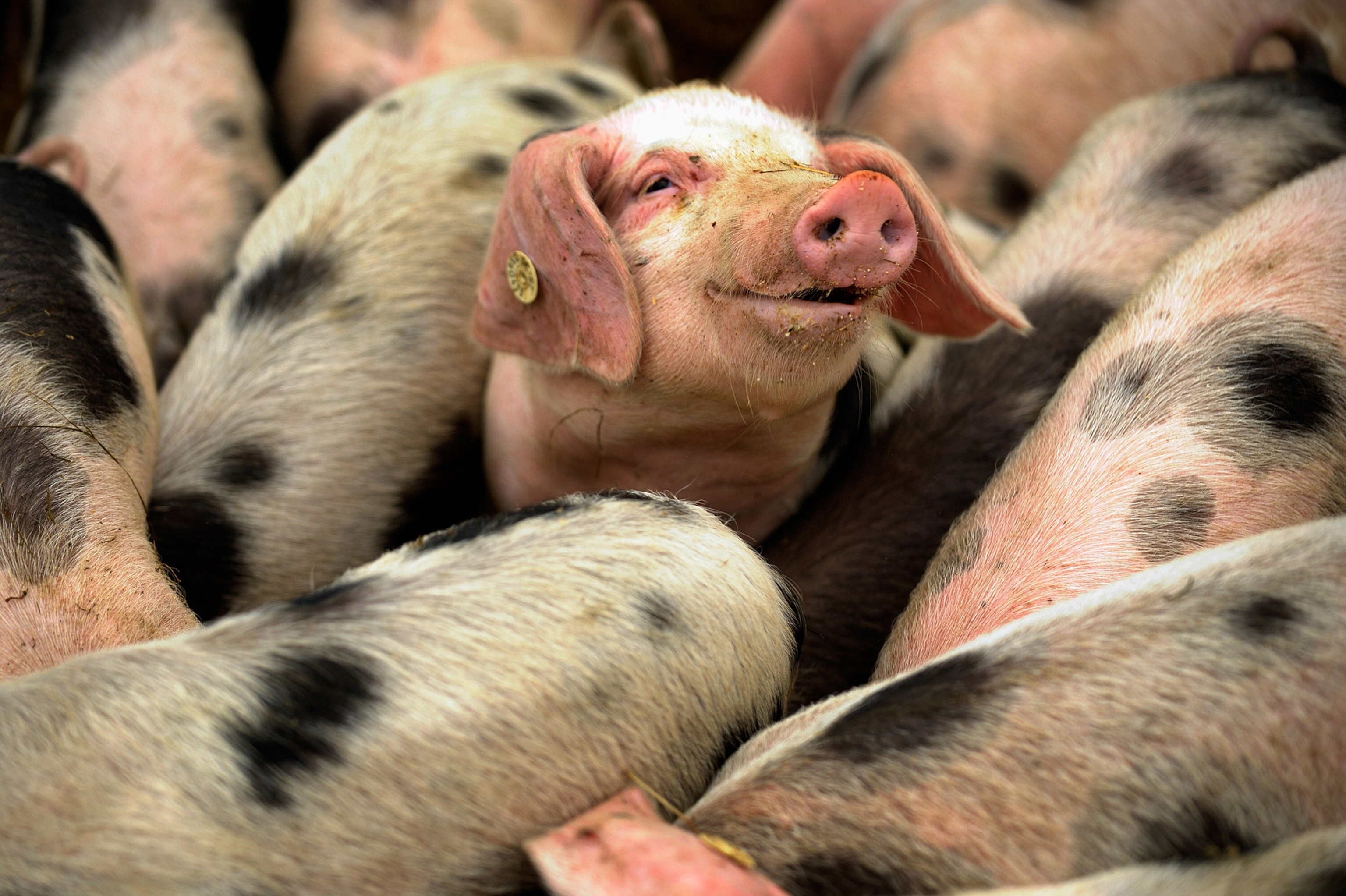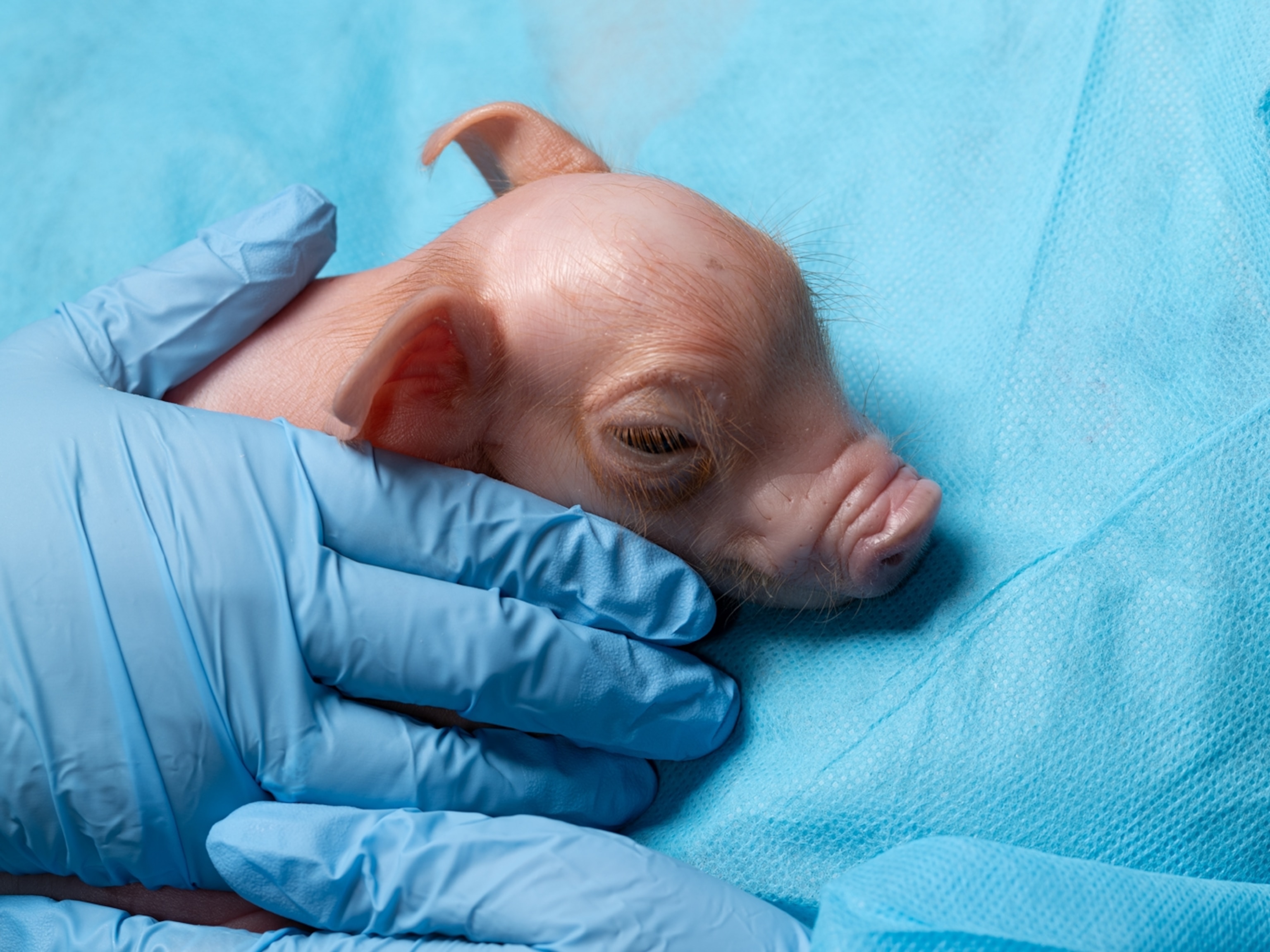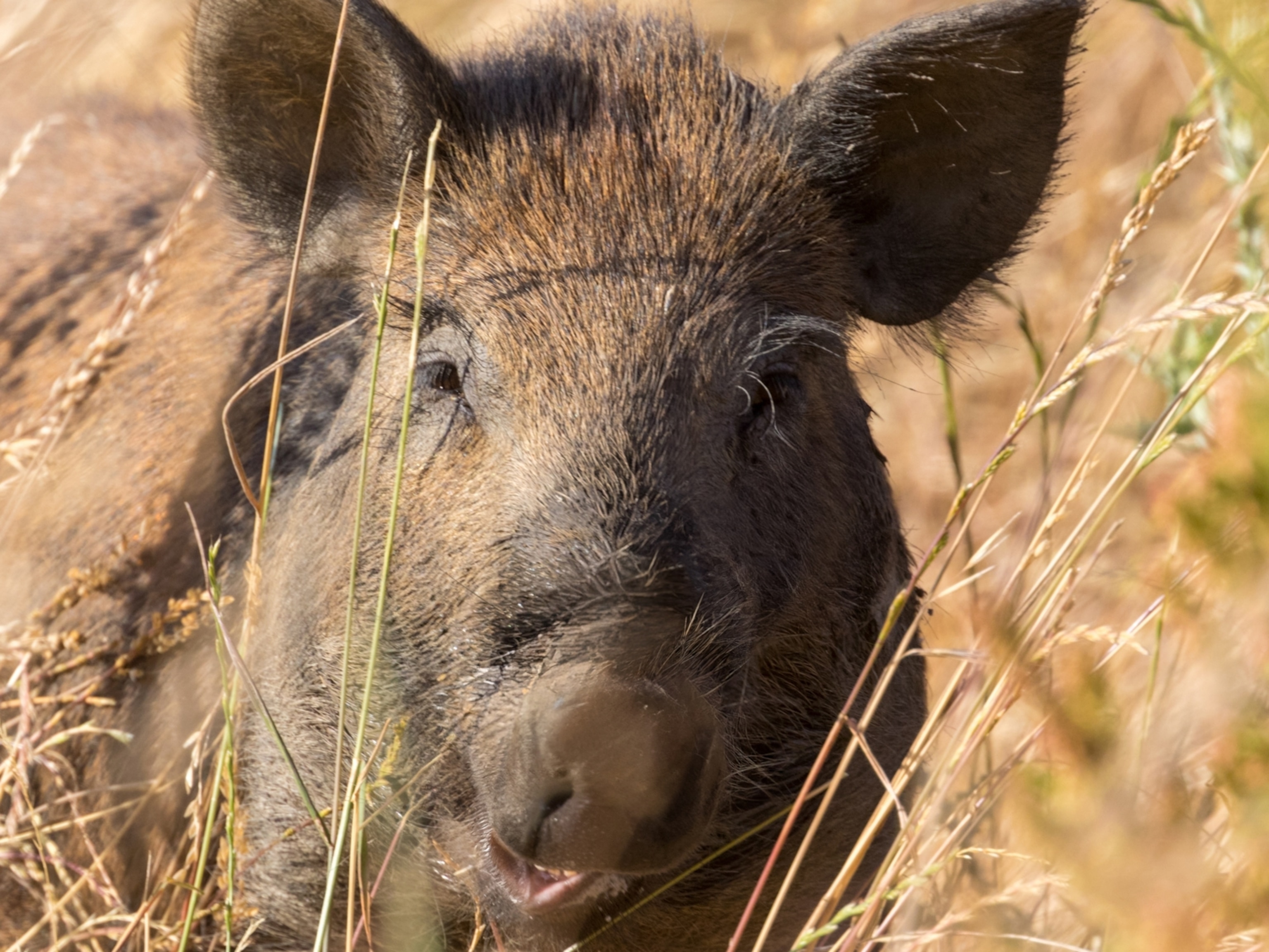
European Hunter-Gatherers Had Domesticated Pigs Earlier Than Thought
Presence of porkers reveals new information about culture in northern Germany.
Domesticated pigs were present in northern Germany around 4600 B.C., some 500 years earlier than previously thought, new fossil and DNA evidence reveals.
The finding, detailed in this week's issue of the journal Nature Communications, is significant because the people living in that part of Europe at the time were Mesolithic hunter-gatherers who primarily lived off of wild game.
These people, known as the Ertebølle culture, kept domesticated dogs as hunting companions, but it would be several hundreds of years before they began raising animals and crops for food.
One hypothesis for how the Ertebølle came to acquire the pigs is that they traded for them with their farmer neighbors to the south.
"It would have been hard [for the hunter-gatherers] not to be fascinated by the strange-looking spotted pigs owned by farmers living nearby," study co-author Greger Larson, an archeologist at Durham University in the UK, said in a statement.
"It should come as no surprise that the hunter-gatherers acquired some eventually, but this study shows that they did very soon after the domestic pigs arrived in northern Europe."
What's New?
Using DNA analysis and tooth morphology comparison techniques, the scientists analyzed the bones and teeth of 63 pigs found at Ertebølle settlements in northern Germany.
The results showed that some of the pigs were domesticated animals that had both Near Eastern and European ancestry and which were similar to pigs bred by Neolithic farmers living in central Europe.
"This is really the first evidence that we have for the Ertebølle culture having domesticated animals at this early date," said study co-leader Ben Krause-Kyora, a biochemist and archeologist at Germany's Christian-Albrechts University.
It is not yet known whether the hunter-gatherers received the pigs via trade or exchange, or by hunting and capturing escaped animals. However, given the close proximity of the two groups and their occasional trading contact, the first scenario is more likely than the latter, the scientists say.
Why Is It Important?
Analyses of the teeth of the domesticated pig bones suggest the animals were smaller than those of boars living in northern Germany at the time.
This size reduction is characteristic of the first phase of domestication for many species, explained study co-leader Almut Nebel, a molecular biologist at Christian-Albrechts-University.
The remains also showed variations in the MC1R gene, which suggests the early farm pigs also had another classic trait of domesticated animals: coats that varied in color and that were spotted.
Overall, though, the ancient European porkers would have been leaner and smaller than modern varieties.
"Modern-day pigs are bred for high amounts of fat and meat," Krause-Kyora said. "Today's pig breeds have an extra pair of ribs ... and they also have a different skull shape."
The snouts of the ancient domesticated pigs would also have been longer and more boarlike than those of modern breeds.
What Does This Mean?
However the Ertebølle people acquired the pigs, there's no evidence that having the animals inspired them to try their hand at pig breeding themselves—at least not at this early date.
"It would be a couple hundred years before they really got into domestication," Nebel said. "It could have started with the pigs, but we don't know for sure."
What's Next?
Krause-Kyora said the team plans to take advantage of next-generation DNA sequencing methods to create a complete genome of the ancient domesticated pigs for comparison with those of modern pig breeds.
Follow Ker Than on Twitter.




